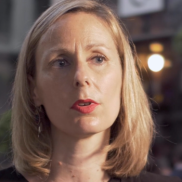

Finance professions
Financial auditor: assignments, skills, training, salary and career development
The growing complexity of financial regulations and the need to guarantee transparency have made the financial auditor an indispensable player. By verifying the reliability and compliance of financial statements, this professional plays a key role in protecting the interests of investors and the credibility of companies on the financial markets.
Description of the Financial Auditor's job
Financial Auditors are accounting and finance professionals who specialise inauditing companies' financial statements . They ensure that the company' s accounts are true and fair by carrying out rigorous checks. Financial Auditors work both internally and externally, for audit firms or directly in the finance departments of companies.
Working closely with financial management and management controllers, the Financial Auditor uses accounting standards and control procedures to guarantee the reliability of the accounts. Their role is crucial for the certification of annual accounts and for issuing an opinion on the annual accounts of organisations.
What is the role and remit of the Financial Auditor?
Auditing financial statements
Financial Auditors examine companies' financial statements to ensure that they are accurate and comply with accounting and legal standards . They carry out both statutory and contractual audits , verifying the accuracy of the accounts and the regularity of transactions. His work includes assessing financial risks and supervising internal control procedures.
Internal control and risk management
The Financial Auditor helps to evaluate and improve internal control systems to ensure that risks are kept under control. They work with the internal auditors to audit information systems and operating procedures, in order to minimise the risk of error and fraud.
Audit reports and certification of accounts
The Financial Auditor drafts audit reports detailing findings and recommendations for improving the company's financial management and accounting . They are also responsible for certifying the annual accounts, thereby ensuring that investors and stakeholders have confidence in the company's accounts.
Advice and support
In addition to theiraudit duties,Financial Auditors also play an advisory role, proposing improvements to optimise accounting and financial management . They support companies in implementing new working methods and complying with international standards such as IFRS.
Tools and technologies used by the Financial Auditor
Technological tools are essential for the Financial Auditor. Here are some of the main tools used:
Audit and accounting software
Software such as ACL Analytics, CaseWare, and IDEA are widely used to automate audit processes, analyse financial data and generate detailed reports. These tools enable the Financial Auditor to work with accurate and up-to-date data, making it easier to detect anomalies and assess risks.
Financial analysis software
Tools such as Bloomberg, Reuters and FactSet are essential for accessing real-time financial data, analysing market trends and producing detailed financial reports. This software provides the Financial Auditor with accurate information to assess the financial performance of companies.
Spreadsheets and financial models
Spreadsheets such as Microsoft Excel and financial models are used to create financial forecasts, evaluate economic scenarios and test different market assumptions. These tools are essential for financial analysis and strategic decision-making.
Financial databases
Access to financial databases, such as S&P Capital IQ and Morningstar, is crucial for the Financial Auditor. These databases provide detailed information on companies, sectors and markets, facilitating benchmarking and performance evaluation.
Data visualisation tools
Data visualisation tools such as Tableau and Power BI are used to create detailed visual reports and interactive dashboards. They help to interpret financial data, track KPIs and present audit results clearly and concisely.
Risk management software
Risk management software such as RiskWatch and MetricStream are used to identify, assess and manage financial and operational risks. These tools enable the Financial Auditor to monitor risks in real time and implement effective control measures.
What skills do you need to be a good Financial Auditor?
Professional skills:
- Mastery of accounting and taxstandards .
- Expertise in auditing and management control.
- Skills in financial analysis and drafting audit reports.
- Knowledge of business, employment and taxlaw.
- Proficiency in accounting management tools and financial software (ERP, accounting software).
Personal skills:
- Thoroughness and methodology: Ability to carry out meticulous checks and follow rigorous procedures.
- Relational and communication skills: Ability to explain financial information clearly and concisely.
- Critical and analytical thinking: Ability to identify anomalies and propose appropriate solutions.
What are the current challenges facing financial auditors?
Digitalisation and digital transformation
The digitalisation of accounting and financial processes is a major challenge for Financial Auditors. The use of advanced software and audit automation are major challenges for improving the efficiency and accuracy of audits.
Financial risk management and compliance
As regulations evolve, Financial Auditors need to keep a constant watch to ensure that the company's accounts comply with international standards and current legislation. Risk management and fraud prevention are priorities for these professionals.
Competitiveness and interpersonal skills
Financial Auditors need to develop interpersonal skills to interact effectively with clients and stakeholders. The ability to communicateaudit results clearly and advise on improvements is essential to maintaining a good reputation and client loyalty.
How do I become a Financial Auditor?
Education and training
To become a Financial Auditor, you generally need a 5-year degree in finance, accounting, management or auditing. The following courses are particularly popular:
- Business school diploma with a specialisation in audit or finance.
- Masters in audit, management control or finance.
- Accounting diplomas such as the DCG (Diplôme de Comptabilité et de Gestion) and the DSCG (Diplôme Supérieur de Comptabilité et de Gestion).
EM Normandie offers courses tailored to this profession, in particular the MSc Banking, Finance and FinTech. This course provides the necessary skills in financial analysis, risk management and investment appraisal, offering a comprehensive preparation for becoming a successful Financial Auditor.
Professional experience
Significant experience as a management controller,internal auditor or accountant is essential. Junior positions in audit or statutory audit firms are key steps towards becoming a Financial Auditor.
What are the career prospects for a Financial Auditor?
- Progression to finance director or management control manager.
- Opportunities in large audit firms, SMEs or multinationals.
- Possibility of becoming a chartered accountant or joining a firm of chartered accountants.
- Transition to a position as a financial management or audit consultant.
- Management of subsidiaries abroad, involving additional responsibilities and economic challenges.
What does a Financial Auditor earn?
The salary of a Financial Auditor varies according to experience, the size of the company and the sector of activity:
- Beginner: Gross monthly salary (approx.): €2,500 - €3,500
- 2-5 years' experience: Gross monthly salary (approx.): €3,500 - €5,500
- 5+ years' experience: Gross monthly salary (approx.): €6,000 and more
What kind of work does a Financial Auditor do?
A variety of employers:
Financial Auditors can work for a variety of organisations, including :
- Large audit and statutory audit firms: Large-scale organisations with international operations.
- SMEs and ETIs (intermediate-sized companies): medium-sized to large companies, often local or national.
- Public and parapublic sector: governmental or semi-governmental institutions.
- Associations and NGOs: non-profit and humanitarian organisations.
- Audit consultancies: Firms providing specialist audit and risk management advice.
The nature of their work may vary slightly depending on their location and the size of the company, encompassing responsibilities ranging from managing tight budgets to coordinating complex audit strategies involving several departments.
Main areas :
A Financial Auditor works in several sectors, including :
- Industry and manufacturing: Managing audits in production environments.
- Financial services and banking: Supervising audits in banking institutions.
- Technology and telecommunications: Managing audits in high-tech companies.
- Health and pharmaceuticals: Supervising audits in the medical and pharmaceutical sectors.
These varied sectors offer many opportunities for Financial Auditors, depending on their skills and professional interests, allowing them to specialise in areas such as risk management, strategic planning, cash management or theoptimisation of financial processes.
In summary
The job of Financial Auditor is essential to ensure the fairness and regularity of a company's accounts. As the central pillar of accounting and financial management , the Financial Auditor plays a crucial role in the strategic direction and financial health of the organisation. Their ability to audit, evaluate and improve internal control procedures is essential to guarantee the transparency and accuracy of financial statements.
Programmes
See all programmesTestimonies
See all testimonies-
 Arthur Streichenberger
Arthur StreichenbergerYouth and Dynamism at Air France: Arthur's work-study track experience
Arthur Streichenberger, a work-study track student at Air France in the post of management controller, expresses his pride and admiration for his contribution to the pilot training programme sector.
-
 Anaïs Trentesaux
Anaïs TrentesauxDirector of Management Control at Courir
Anaïs Trentesaux graduated in 1999 and rose through the ranks to become Director of Management Control at Courir.
-
 Julien Clérot
Julien ClérotCo-founder of Jules et Jean
Find out more about Julien, co-founder of Jules et Jean, a fresh local produce market for consumers in the Manche department.
-
 Amaury Boelle
Amaury BoelleCo-founder of Kickston, investment bank
A 2014 graduate, Amaury set up his first company with a classmate in the final year of his Bachelor's degree. Today, he is in his tenth year of entrepreneurship. He sees each business launch as an apprenticeship.